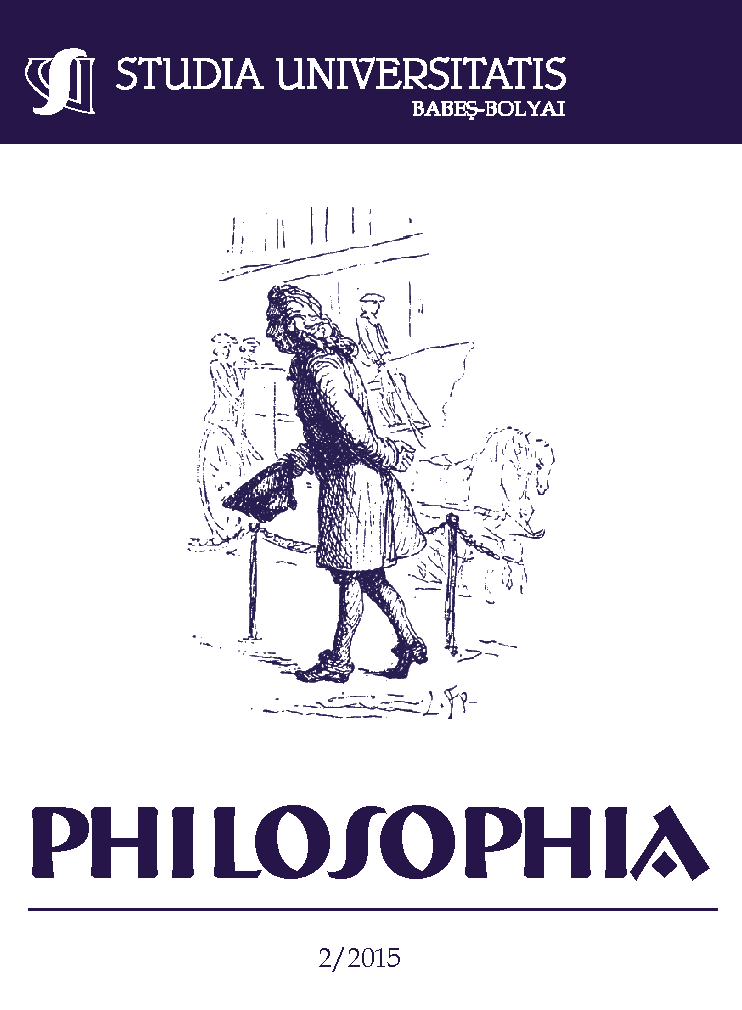WHAT IS IT TO BE A PERSON?
Keywords:
Person, Reflexive self-consciousness, Criterialism, First potentialities, Second potentialitiesAbstract
I will deal with the synchronic question of persons to clarify the necessary and sufficient conditions for being a person. Having reflexive self-consciousness is both the necessary and sufficient conditions for being a person. I discuss the relationship between having reflexive self-consciousness and the other properties which uniquely belong to persons ‘i.e.,’ being a moral agent, being a rational agent and having free will. A problem arises when one defines a person based on having reflexive self-consciousness. “Is a sleeping human being still a person?” To resolve the problem, I will appeal to Aristotle’s distinction between first and second potentialities.References
Aristotle, The Works of Aristotle, Translated under editorship of W.D. Ross, Clarendon Press, 1908-1952.
Baker, Lynne Rudder, Persons and Bodies: A constitution View, Cambridge University Press, 2000.
Baker, Lynne Rudder, Naturalism and the First-person Perspective, Oxford University Press, 2013.
Beckwith, Francis J., “Abortion, Bioethics, and Personhood: A Philosophical Reflection”, The Southern Baptist Journal of Theology, 4:1, 2000, 16-25.
Bekoff, Marc, The Emotional Lives of Animals: A Leading Scientist Explores Animal Joy, Sorrow, and Empathy-and Why they matter, New World Library, 2007.
Bermúdez, José Luis, The Paradox of Self-consciousness, MIT Press, 2000.
Carruthers, Peter “The Evolution of Consciousness.” http://faculty.philosophy.umd.edu/pcarruthers/Evolution-of-consciousness.htm, 2014.
Cavalieri, Paola and Catherine Woollard, The Animal Question: Why Non-Human Animal Deserve Human Rights, Oxford University Press, 2001.
DeGrazia, David, “On the Question of Personhood beyond Homo Sapiens.” In Peter Singer In Defense of Animals: The Second Wave, Blackwell Publishing, 2006, 40-53.
Flanagan, Owen, Consciousness Reconsidered, MIT Press, 1992.
Frankfurt, Harry G.,“Freedom of the Will and the Concept of Person”, The Journal of Philosophy, 68:1, 1971, 5-20.
Gallagher, Shaun, “Moral Agency, Self-consciousness and Practical Wisdom”, Journal of Consciousness Studies, 14: 5-6, 2007, 199-223.
Garrett, Brian, Personal Identity and Self-Consciousness, Routledge, 1998.
Goldman, Alvin I., A Theory of Human Action, Princeton University Press, 1970.
Hodgson, David, Rationality + Consciousness = Free will, Oxford University Press, 2012.
James, William, Psychology, H. Holt & Co, 1982.
Kane, Robert, The Significance of Free Will, Oxford University Press, 1997.
Lewis, Michael, Shame: The Exposed Self, The Free Press, Maxwell Macmillan Canada, 1992.
Locke, John, An essay concerning human understanding, Clarendon Press, 1894.
Lowe, E.J., An Introduction to the Philosophy of Mind, Cambridge university press, 2001.
Perry, John and Simon Blackburn, “Thought Without Representation.” Proceedings of the Aristotelian Society 60: 137-151 + 153-166, 1986.
Singer, Peter, Practical Ethics, Cambridge University Press, 2011.
Strawson, Peter, Individual: An Essay in Descriptive Metaphysics, Mehtuen, 1955.
Stump, Eleonore, “Sanctification, Hardening of the Heart, and Frankfurt’s concept of Free will”, The Journal of Philosophy, 85: 8, 1998, 395-420.
Tooley, Michael, Abortion and Infanticide, Clarendon Press, 1983.
Warren, Mary Anne, “On the Moral and Legal Status of Abortion,” In Hugh La Follette, Ethics in Practice, Blackwell Publishers, 2002, 72-82.
Wiggins, David, “The Person as Object of Science, as Subject of Experience, and as Locus of Values”, In Arthur Peacocke and Grant Gillett, Person and Personality: A Contemporary Inquiry, Basil Blackwell. 1987, 56-74.
Zahavi, Dan, Subjectivity and Self-hood: Investigating the First-Person Perspective, MIT Press, 2005.
Zahavi, Dan, “First-person thought and embodied self-awareness: Some reflection on the relation between recent analytical philosophy and phenomenology.” Phenomenology and The Cognitive Science ,1, 2002, 17-26.
Downloads
Published
How to Cite
Issue
Section
License
Copyright (c) 2015 Studia Universitatis Babeș-Bolyai Philosophia

This work is licensed under a Creative Commons Attribution-NonCommercial-NoDerivatives 4.0 International License.





